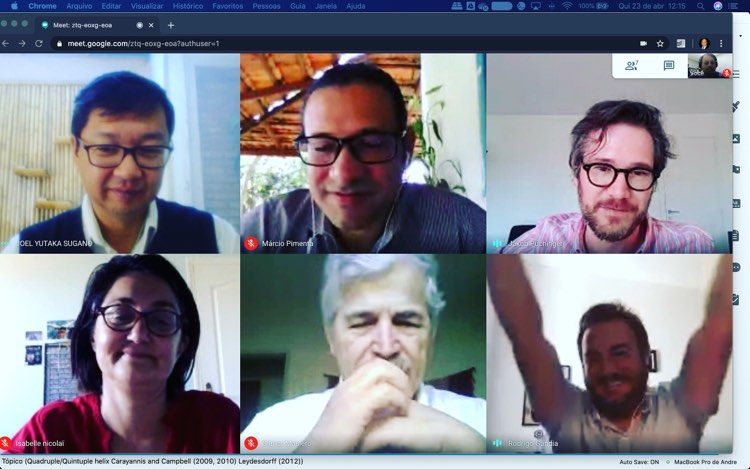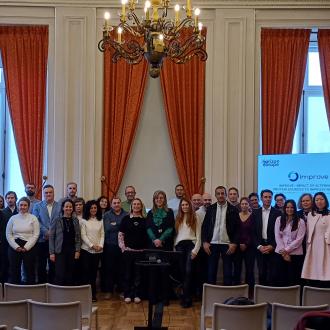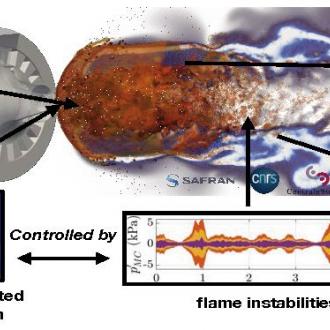 Congrats to PhD student Rodrigo Gandia, just graduated from Universidade Federale de Lavras (Brazil) and Université Paris-Saclay through Industrial Engineering Laboratory. Members of the jury were gathered in a virtual room. See picture on the left.
Congrats to PhD student Rodrigo Gandia, just graduated from Universidade Federale de Lavras (Brazil) and Université Paris-Saclay through Industrial Engineering Laboratory. Members of the jury were gathered in a virtual room. See picture on the left.
Here below is the abstract of his thesis:
Title: Innovation in Ecosystem Business Models: An Application to MaaS and Autonomous Vehicles in Urban Mobility System
Given existing environmental pressures, the importance of traffic safety and increasing regulatory constraints, mobility in cities is a major concern for communities and citizens. In this context, tech- nological innovations based on the widespread use of connected and shared vehicles, the emergence of Autonomous Vehicles (AVs), impose a reflection on the definition of sustainable urban mobility in the cities of the future.
In addition to traditional transport, individual solutions are being developed (car sharing, soft mobility, autonomous shuttle, etc.) which must be part of a global urban mobility system. In this sense, the concept of Mobility as a Service (MaaS) has gained ground and has become a concrete market option ensuring a transition from the existing property-based transport system to a use-based system.
MaaS meets the transport needs of users through a single interface of a service provider by combining different modes of transport to provide a tailor-made mobility offer. This approach places the user at the center of mobility issues. The innovations involved in urban mobility are technological but also social and organizational. They are multi-actor and require coordination of each actor involved in the value chain to develop and disseminate these innovations.
We are thus talking about innovation in a business ecosystem. To date, like any innovation, MaaS is a source of uncertainty for markets and surrounded by ambiguities. Moreover, MaaS deployments are mainly concentrated in developed countries with efficient public transport systems. However, we believe that MaaS is modular, adaptable and applicable to a variety of realities (including a wide variety of public-private transport systems). Based on this research, this Ph.D. thesis aims to analyze the con- cept of MaaS in order to identify its implementation and acceptance within an urban mobility system. The results of our work indicate that the MaaS system can be based on the theoretical tripod of “Product-Service System (PSS)”, "business ecosystem" and "eco-innovation".
Also, we propose that MaaS can be thought of not only as a transport concept, phenomenon or solution but also as a business model. Therefore, we propose that MaaS should be oriented towards the value proposition of users, within addition, a reflection based on the successful dissemination of MaaS in southern countries. In order to take its place in the urban mobility of the future, MaaS must be considered as a modular and adaptable economic model, applicable to all contexts (the efficiency - or inefficiency - of public transport must not be limited). To this end, the MaaS business model must be established as part of a systemic rethinking around the mobility ecosystem, and sustainability should not be considered as an intrinsic characteristic of a MaaS model.
This innovative ecosystem business model is oriented towards consumer acceptance (user-centric innovation) and acceptance of existing transport modes that fit the specific context established. We will broaden our analysis of the condi- tions of development and diffusion of the autonomous vehicle within a MaaS at the socio-political level. In this sense, shared and connected AVs must be considered as one, among several elements of the urban mobility ecosystem. Keywords: Mobility as a Service; Autonomous Vehicles; Urban Mobility.




